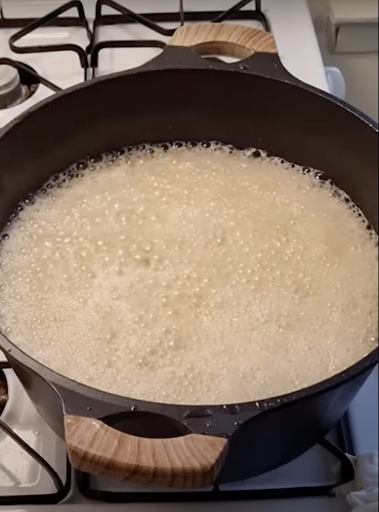
Wood-pressed oils are extracted from various seeds, nuts using traditional methods that involve crushing the source material and applying pressure to extract the oil. These oils are typically in their true (most) natural form and retain more natural flavours and nutrients because they are not exposed to any external heat. Whereas, refined oils are processed using heat and chemicals and other harsh methods.
This unique property of Indic Wisdom's wood-pressed oils makes us different from other refined oils.
However, when we heat wood-pressed oils during cooking, they can sometimes produce foam. Consumers often perceive it as impure and inedible, but foaming is normal.
Do you become concerned when you observe froth while cooking with Cold Pressed oils? If this is the case, we are here to answer your question and explain why it occurs.
Foaming in oil is most noticeable when it is used for deep frying meals. It is a pretty typical phenomenon if we try to understand the root cause and not rely on the internet for answers.
What’s the primary reason for frothing when cooking with cold-pressed oils?
In contrast to refined oils, which are purposefully treated with anti-foaming compounds like dimethylpolysiloxane to prevent foam formation, cold-pressed oils are naturally extracted without the use of any chemicals.
Read more about the benefits of wood-pressed oils here.
It's important to note that the degree of foaming can vary among different types of wood-pressed oils. Some oils may produce more foam than others due to variations in their composition. Though foaming is not harmful, we have a few tips and tricks up our sleeve to minimise it and enjoy a hassle-free cooking time.
Remember that the foaming of wood-pressed oils is a natural characteristic and doesn't indicate any quality issues. We test all our wood-pressed oils and only sell them once our experts give a green signal. We also have our test reports available for all our consumers that are open to view on demand.
Our consumers can use our oils in their everyday cooking without any hesitation.
